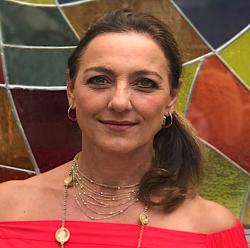How to Lead Like an Octopus
Six Ways to Gain Discretionary Effort
June 1, 2015When to Coach. When to Mentor.
June 15, 2015The octopus could teach some leaders a thing or two about leadership. Specifically it can help leaders who micromanage, those who worry over the smallest details of the direction they give their employees. Living for eons in an environment of ever-present danger, the octopus has learned to decentralize leadership and not try to manage the small stuff.
 Think of an octopus as the leader of an eight-person team. The head provides vision and relies on what it has learned in its life to make decisions in response to what it senses. Its eyes take in the big picture and address the needs of the entire organism.
Think of an octopus as the leader of an eight-person team. The head provides vision and relies on what it has learned in its life to make decisions in response to what it senses. Its eyes take in the big picture and address the needs of the entire organism.
Not unlike a general standing on a hill peering through binoculars or a ship’s captain on deck surveying the see through a telescope. Like the best leaders, the octopus brain gives directions to the eight arms and leaves the details to the team.
Octopus as Leader
Biologist have proven that while each arm of the octopus is capable of doing many different things, the brain tells each arm what to do, not how to do it. It may send an appendage outward in a certain direction and at a given speed, but all the muscle activity is governed by the arm itself, not the brain of the octopus.
Rather than manage all the way down to the tentacle level, the octopus brain relies on the arms to do what they do best in response to what they observe most closely. For example, every cell of octopus skin can instantly change color, each cell adapting individually, in response to the environment in its immediate vicinity. No help from the brain.
The octopus brain also makes sure all eight arms are working toward the same purpose, whether they all coordinate to move the cephalopod in a certain direction, or if each arm searches for food independently, or if some search, others feel out the environment, and one grasps an object for stability.
Octopus Delegation
In organizations and in octopuses, this is called decentralization. It requires leaders comfortable with delegation. Two lesson to learn from the octopus:
- Get the big picture and use your experience to give direction in terms of objectives, not specifics.
- Make sure all of your team members are aligned with the objectives of the organization.
Of course, the octopus cannot teach you everything you need to know about growing as a leader. To do that, I recommend our CoachQuest Leader-as-Coach Program. There you will learn and practice the leadership skills you need to address alongside leaders like you from other organizations with many of the same challenges.
Learn more about CoachQuest.
[el52b35d3687258]

